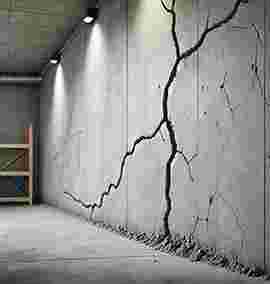A dry, healthy basement is essential for maintaining the long-term value and safety of any property. Basement waterproofing is the process of preventing water from entering your basement or crawl space — whether through foundation walls, floors, or joints — and it plays a crucial role in keeping your home structurally sound, mold-free, and energy-efficient.
Why Basement Waterproofing Matters
When moisture is allowed to seep into your basement, it can lead to a wide range of issues, including:
-
Foundation damage – Over time, water pressure can cause cracks in concrete walls and floors.
-
Mold and mildew growth – Damp environments create the perfect breeding ground for harmful spores.
-
Musty odors and poor air quality – Moisture affects not only the basement but also the air throughout your home.
-
Pest infestations – Bugs and rodents are drawn to humid, sheltered areas like a wet basement.
Addressing these problems proactively through waterproofing protects your family’s health and prevents expensive repairs in the future.
Common Causes of Basement Water Problems
Before waterproofing, it’s helpful to understand how water is getting in:
-
Hydrostatic pressure – Groundwater builds up and forces water through basement walls and floors.
-
Poor drainage – Clogged gutters, downspouts, or improper grading allow water to pool near your foundation.
-
Cracks in foundation or walls – Even small openings can let moisture through.
-
Condensation – High humidity levels can cause moisture to collect on cooler surfaces inside your basement.
Proven Basement Waterproofing Solutions
To effectively keep your basement dry, professionals use a combination of interior and exterior techniques tailored to your property:
-
Interior drainage systems: French drains and sump pumps collect and redirect water away from your basement.
-
Sealing foundation cracks: Epoxy or polyurethane injections create a durable, watertight barrier.
-
Exterior waterproofing membranes: These are applied to the outside of foundation walls to block incoming water.
-
Gutter and landscape grading improvements: Ensuring water flows away from your home reduces pressure on your basement walls.
-
Dehumidifiers and ventilation: These help control moisture levels inside in damp environments.
Benefits of a Waterproofed Basement
Investing in waterproofing offers both immediate and long-term rewards:
-
Improved overall home health
-
Prevention of costly structural damage
-
Greater energy efficiency
-
Increased property value
-
A usable, dry space for storage or living
Final Thoughts
Basement waterproofing is more than just fixing leaks — it’s about protecting your property’s foundation and the well-being of those living inside. By understanding the sources of water intrusion and choosing the right waterproofing strategy, homeowners can create a safer, cleaner, and more valuable home for years to come.




